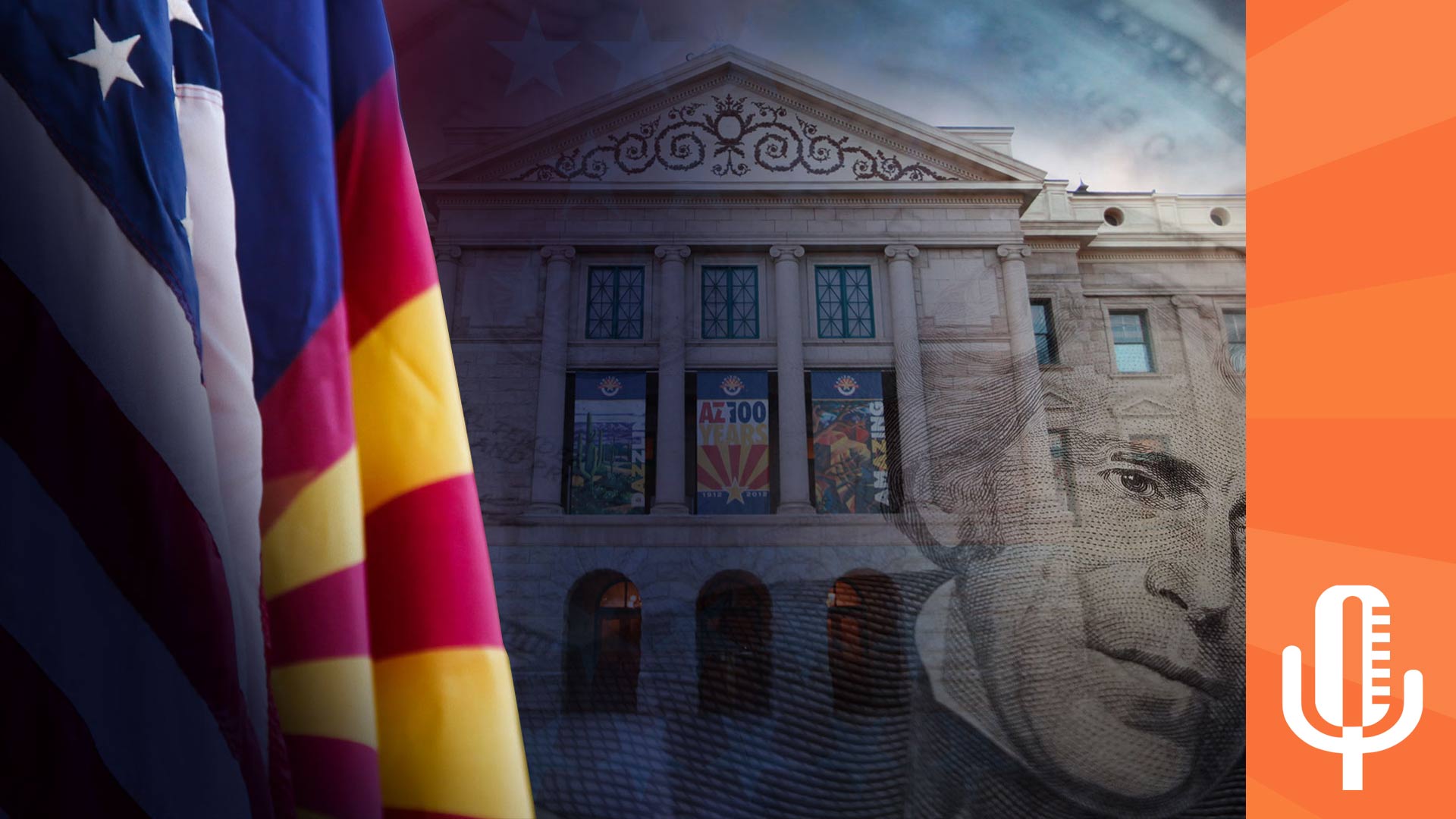 Money in politics is a hot issue in Arizona.
Money in politics is a hot issue in Arizona.
The Buzz for October 25, 2024

As voters prepare for election day, many are ready for an end to political commercials, mailers, campaign signs, door-knocking, and other common moves by groups hoping to sway their opinions.
Those efforts are expensive, and the newly-minted swing state of Arizona is now a place where politicians are spending big.
But where does the money for campaigning come from?
AZPM's data-trained reporters dove into the latest state and federal reports to find out more about that.
Arizona's ballot is packed with ballot initiatives this year, and the biggest recipient is the group pushing Proposition 139, Arizonans for Abortion Access, which received about $27 million. And large portions of that money came from out-of-state groups and individuals ranging from out-of-state branches of Planned Parenthood to philanthropists like former New York City Mayor Michael Bloomberg and actress Kate Capshaw. Funding on the opposite side of the abortion ballot measure was notably lower and mostly went to It Goes Too Far.
One other ballot measure saw a large amount of donations, Proposition 140, which would introduce an open primary system to the state. Its backers, Make Elections Fair AZ, raised about $10 million, mostly through large donations, while its opponents fundraising was also notably smaller.
Other campaign issues saw fundraising in the thousands or tens of thousands of dollars, including the groups on either side of Proposition 314, which is attempting to change rules around border law enforcement in the state.
Arizona's statewide races are drawing large amounts of funding from outside the state, with much of it going to PACs and those seeking to sway voters on propositions.
Those donations are largely going to Democratic causes, particularly the aforementioned Arizonans for Abortion Access, but also the state Democratic Party and other left-leaning PACs.
Large donations from out-of-state donors to Republican causes are notably smaller. And Make Elections Fair AZ, which is pushing a ballot initiative that does not have the support of either party, makes up all donations to independent causes, though some of its donors also give to Republican or Democratic causes also.
Arizona's status as a swing state is also drawing in out-of-state money to congressional races.
The congressional district that sits in the state's southeastern corner has long been known as a toss-up, switching back and forth between Republicans and Democrats for more than a decade.
Congressional District 6's general election candidates have raised more than $13 million between them, with Democratic challenger Kirsten Engel outraising Juan Ciscomani by more than $1 million.
That race has routinely drawn large amounts of financial support from ZIP codes in the area of Tucson known as the Catalina Foothills, but this year's race is seeing large amounts of spending from outside of that area and outside the state.
Top donation ZIP codes this year are in the Washington, DC area for both candidates, with Engel drawing much of her donations from outside Arizona. Ciscomani is drawing more support from Tucson's wealthy neighborhoods than Engel.
The large amounts of cash needed to stay competitive in the race are a stark difference from some of the state's non-competitive races. By comparison, candidates in CD 7 and CD 9 have raised less than 5% of what candidates in the state's most expensive race have.
CD 7 is represented by longtime Democratic incumbent Raul Grijalva, who has raised almost $857,000 to his opponent, Republican Daniel Butierez's $54,000. CD 9 is represented by Republican Paul Gosar who has raised $426,000, while Democratic challenger Quacy Smith has raised $211,000.
Raising for safe districts and incumbents tend to draw the least donations, while safe districts with open seats, such as those being left by Republican Debbie Lesko and Democrat Ruben Gallego, see large spending in the primaries.
And a district's makeup can be undone by a close race, such as in CD 2, where recent polling data from Noble Predictive Insights shows a dead heat between incumbent Republican Eli Crane and Democratic challenger Johnathan Nez. That race has seen nearly $11 million raised, with Crane holding a roughly 2-1 advantage in funding.
While money coming in from outside Arizona is a common topic of discussion as an election draws near, another topic this year has been campaign money spent outside the state by a current US Senator from the state. Independent Kyrsten Sinema is not running for re-election, but that hasn't stopped her from spending what she has in campaign coffers, according to Wayne Schutsky, who detailed some lavish travel expenses for KJZZ.


By submitting your comments, you hereby give AZPM the right to post your comments and potentially use them in any other form of media operated by this institution.